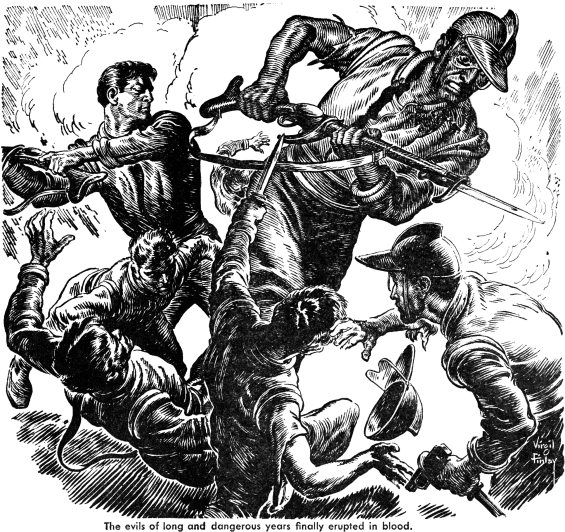
 The SFFaudio Podcast #324 – This Crowded Earth by Robert Bloch; read by Gregg Margarite. This is an unabridged reading of the novel (3 hours 30 minutes) followed by a discussion of it. Participants in the discussion include Jesse and John Feaster.
The SFFaudio Podcast #324 – This Crowded Earth by Robert Bloch; read by Gregg Margarite. This is an unabridged reading of the novel (3 hours 30 minutes) followed by a discussion of it. Participants in the discussion include Jesse and John Feaster.
Talked about on today’s show:
the only public domain novel by Robert Bloch, a member of the Lovecraft circle, fans of Lovecraft vs. the public at large, The Shambler From The Stars, a sense of humour, Leffingwell = livingwell, a Nazi-esque character, Paul F. Thompkins, 1958, Make Room, Make Room, 1968, overpopulation, The Population Bomb, the baby boom, the Asiatics, a terrible book, a monster of a book, the yardsticks aren’t a metaphor for racism, “midgets”, The Lonely Crowd, the women in this story…, housewives and pretend nurses, not a pure SF novel, Slaughterhouse Five by Kurt Vonnegut, a sociological novel, Jesse isn’t a fan of Psycho, Yours Truly Jack The Ripper, mainstream hack solutions, Bloch is a fan of science fiction, he’s talking about Clifford [D.] Simak here, the solution to overpopulation is to make everybody smaller, you have to lean into that, a weird pacing, Game Of Thrones, an underground secret society, the meta stuff is pretty good, the opening chapter, 70s era Jack [L.] Chalker, caesarian section is the solution?!, an entertaining story, why the heck is little Harry Collins named Harry Collins?, “you’ve dropped your premise”, western wildernesses, why is the President of The United States so excited about 20 pounds of hamburger, really undercooked (hamburger), the 7 hour workday, the 5 hour workday, the 4 hour workday, a 15mph commute, population efficiency, just fix the trains in this world, Soylent Green, not enough room (physical space), telecommuting, personal transport laws, a mash-up of Nineteen Eighty-Four, the Project Mayhem portion of Fight Club and The Wizard Of Oz, Collins is constantly searching for the wizard, mistaking Beatniks for a religious order, a high-Daddio, The Planet Of The Apes premise, a dog and cat disease, accepting the premise, playing with science fiction tropes, an impressionistic idea of the world and the path it is on, the naturals or naturalists, its almost hippies, a generational metaphor, drug use, everybody takes yellow jackets, barbiturate, mixing with alcohol, a one child policy is IMPOSSIBLE?, emigration is IMPOSSIBLE, faster maturity faster death, living on Mars would make you barrel chested, island isolated animals change their size (Island gigantism or Insular dwarfism), pilots need to be short, small people and women endure g-forces better, little people on generation starships, food consumption, he follows through with his own joke, a buffet of ridiculous premises, a strange buffet, an entertaining buffet, politics and the super-rich go hand-in-hand, “the little plan”, “small government”, “it’s a small world after all”, Little John, silly, packed with a lot of weirdness, like a season of Star Trek, written over a weekend?, such a little apartment, “he’s living in a closet”, this would have to be a cartoon if it were a film, the world is a Flintstones background, if there had only been a female character who…, Stephen King loves westerns but can’t write them, lean into it, so why is this world not our problem?, LosSisco, William Gibson’s the Sprawl, Chicago and Milwaukee, well crafted characters (for talking heads), Pol Pot, no actual shitbags, the story of a 15 year old, sociologically and emotionally, the Goodreads reviews, Isaac Asimov’s the Hari Seldon plan, Marching Morons by C.M. Kornbluth, breeding a crazy man, West End Games, Paranoia, the crappy text adventure games (that were fun to play), walking off to the unmapped areas, what about this bugbear?, in a future where cows are caviar, “bring your wife, we’ll have a party”, I’ll bang off something for Planet Stories, Psycho, 1959 and 1960, John defends Psycho, Bloch’s Star Trek script “Wolf In The Fold“, Bloch’s obsession with Jack The Ripper, Richard Matheson’s Night Gallery episode, Time After Time, a future thrill kill story [sounds somewhat like The Roller Coaster by Alfred Bester], before The Silence Of The Lambs, Hannibal, charismatic serial killers is a trope now, Ed Gein, H.H. Holmes (not H.H. Munro), the Chicago murder castle, a writer re-writing and thinking about an idea over and over again, serial writers must do it again, to “recreate it”, seeing a writer writing outside of his main genre, Stephen King’s The Dark Tower series, it’s a little 15-year old, simply written to pay a bill, finally Scotty gets his own episode, I canna remember, Star Trek with a serial killer is weird, That Hellbound Train, The Gold Key The Twilight Zone comics, an EC Comics knockoff, I’m being published for crappy reasons, nobody’s going to read this in two weeks so read it now, this story is a bird-house made by a talented mechanic, a giant truck that is the internet, 60s and 70s era Robert Bloch are sealed up outside of the trunk that is the internet, accept it within its boundaries, a character from the 1950s in a crazy 1950s future, how does the story affect you?, a Rorschach test, it doesn’t care about you, this story is a friend of yours off in the corner playing with LEGOs and the only thing you can do is criticize what he’s building.

Posted by Jesse Willis

 Caves of Steel (Robots #1)
Caves of Steel (Robots #1)